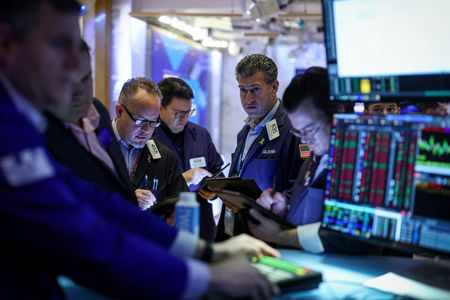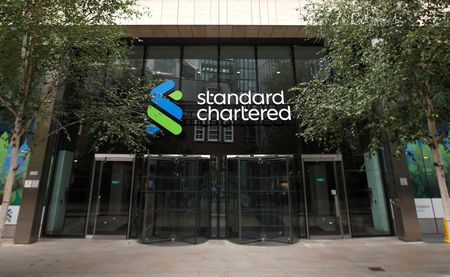By Summer Zhen
HONG KONG (Reuters) – The hedge funds that have managed to weather and outperform China’s bumpy stock markets so far this year say betting on big-picture macroeconomic changes has helped them.
One such fund is Stanley Tao’s $230 million Golden Nest Greater China Fund. The hedge fund posted approximately a 2.4% net return for September, according to internal estimates, and is down 1.2% for the first nine months.
That compares with MSCI China’s roughly 30% decline in the nine months to September, marking the worst first nine months since 2008. The Shanghai Composite Index shed 16% during the same period and fell 5.5% in September alone.
Extreme risk aversion and bearish bets on internet, real estate and healthcare sectors helped the fund navigate the strong headwinds, Tao, founder and CIO at Golden Nest Capital Management, said.
Tao said his fund started cutting exposure to technology stocks and turned bearish since late 2020 after monitoring regulatory developments, external risks from an audit dispute with U.S. regulators, and recognising that the Chinese government was resolute about fixing a “disorderly expansion of capital” at technology firms.
China-focused long-short equity funds were down 13.5% by the end of August, in sharp contrast to a 1.1% gain by China macro managers, according to Eurekahedge data from With Intelligence.
Macro strategies are the biggest winners this year, with hedge funds cashing in on the volatility spawned by the differing pace of global rate rises and regulatory changes — seizing opportunities that didn’t exist during a decade of uniform easy monetary policies everywhere. For stock-pickers, top-down research is also a key factor in winning or not.
“Ignoring the importance of macro research could be a big mistake for some fundamental investors,” said Tao, adding such macro research stops funds from rushing into markets at the end of a bull run, or bottom fishing when a bear market begins.
The $1.8 billion Shanghai Chongyang Investment Management, another hedge fund, reduced exposure to stocks twice in the first quarter to about 60% of assets, thus partially avoiding the panic selling that ensued during China’s stringent COVID-19 lockdowns.
Partial or full lockdowns were imposed in major centres across the country from March to May, including the most populous city Shanghai, and snap lockdowns continue to be implemented in some areas to stamp out outbreaks.
“We turned cautious in February and seized the window of a sharp market rally at end-March to further reduce our positions,” said Wang Qing, chairman at Shanghai Chongyang.
The market didn’t fully price in the downside risks to economic growth and corporate earnings at the time, Wang said.
China’s economy braked sharply in the second quarter as lockdowns hit consumption and factory output, but there is growing optimism that pandemic restrictions will ease.
Chongyang has decided the fourth quarter is the time to become positive and has started to add some tech and consumer stocks to its portfolio in the past few months.
Its yuan-denominated Chongyang I fund dipped 1.4%, while an offshore U.S. dollar product Chongyang Dynamic Value Fund was down 8.6% by the end of August.
Wang believes market sentiment will improve in three months, expecting China will ease COVID-19 restrictions after the October Communist Party Congress, and U.S. inflation should have fallen for 4 to 5 months by then.
Golden Nest’s Tao, however, will remain cautious until next March when China outlines its economic policy direction during the ‘Two Sessions’ — meetings of the top decision-making bodies, the National People’s Congress (NPC) and the Chinese People’s Political Consultative Conference (CPPCC).
(This story has been refiled to fix the word in first paragraph to has, not have)
(Editing by Vidya Ranganathan and Jacqueline Wong)











